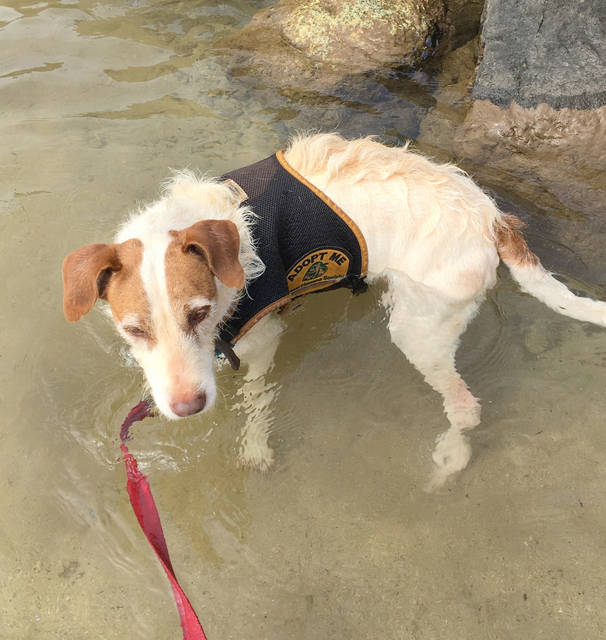PUHI — Just days after some Kauai Humane Society dogs went Home for the Holidays, a program that allows people to take shelter animals home over Christmas, one of the transfer dogs brought a present of its own to Seattle.
It was leptospirosis, a bacterial disease that brings on weakness, pain and fever in dogs, and violent, flu-like symptoms in humans, and it triggered a 21-day shutdown of the KHS field trip program.
The timeframe is due to leptospirosis’ 21-day incubation period.
Leptospirosis, or lepto, not generally a fatal disease, can cause serious damage to kidneys and livers in both dogs and humans. The disease is spread through animal urine, and its presence in runoff water is one of the listed concerns in the state Department of Health’s brown-water advisories.
“The dog that got sick in Seattle exhibited no symptoms on Kauai. Actually, it had been in Seattle for 10 days before it started showing symptoms,” said KHS Executive Director Mirah Horowitz.
It was one of two transfer dogs that have recently gotten sick once they landed at their respective mainland shelters.
The first was transferred to a Portland shelter Dec. 19 and exhibited symptoms of lepto after arriving. It tested negative for the bacterial disease. The second dog, the one that triggered the field-trip shutdown, was transferred to Seattle Dec. 26 and tested positive after exhibiting symptoms in Seattle.
“The first dog was really sick and the second one never got that sick,” Horowitz said. “They had been in neighboring kennels at the shelter.”
Staff began testing all the dogs at KHS for leptospirosis as soon as the first dog’s symptoms were reported, and shut down the field-trip program because of the potential for an infected dog to spread it to a human.
“We didn’t want to even have the risk of spreading it anywhere else on the island, and we didn’t want the potential of a field-trip volunteer getting sick,” Horowitz said.
While the dog diagnosed with lepto was on-island, it came in contact with two of the three kennel banks where dogs are housed at KHS, and played with dogs from those bays.
Because of that, all of those dogs were taken off-line from the program until they are deemed healthy.
“The program wasn’t 100 percent shut down because the dogs in the last bank of kennels had never been in the play yard with the dog that had been sick,” Horowitz said.
Only three dogs were in that bank, though, so KHS advertised a pause on the program, and reserved those dogs for those who hadn’t heard the program was on hold.
Now, the field-trip program is in full swing once again, and all the dogs have tested negative for lepto at KHS.
Horowitz said there’s always a possibility that any animals that come into KHS will get sick.
That’s why the shelter has a quarantine period for intake animals, and why they vaccinate.
“The problem is, we don’t always know the vaccine history of a stray or owner-surrender,” Horowitz said.
“And we didn’t know the full vaccine history of the animals at the shelter at the time they’d been in the same play yard as the dog that had been sick.”
She pointed out, especially with the flooding and rain events in 2018, the level of lepto has increased on the island, and dogs should be vaccinated. Lepto vaccinations also require a booster.
“They’re given at the low-cost clinics we have on the first Saturday of every month,” Horowitz said.
“It’s important to prevent the spread of disease to the best of our ability. It’s not a fun thing to have.”
•••
Jessica Else, environment reporter, can be reached at 245-0452 or jelse@thegardenisland.com.


